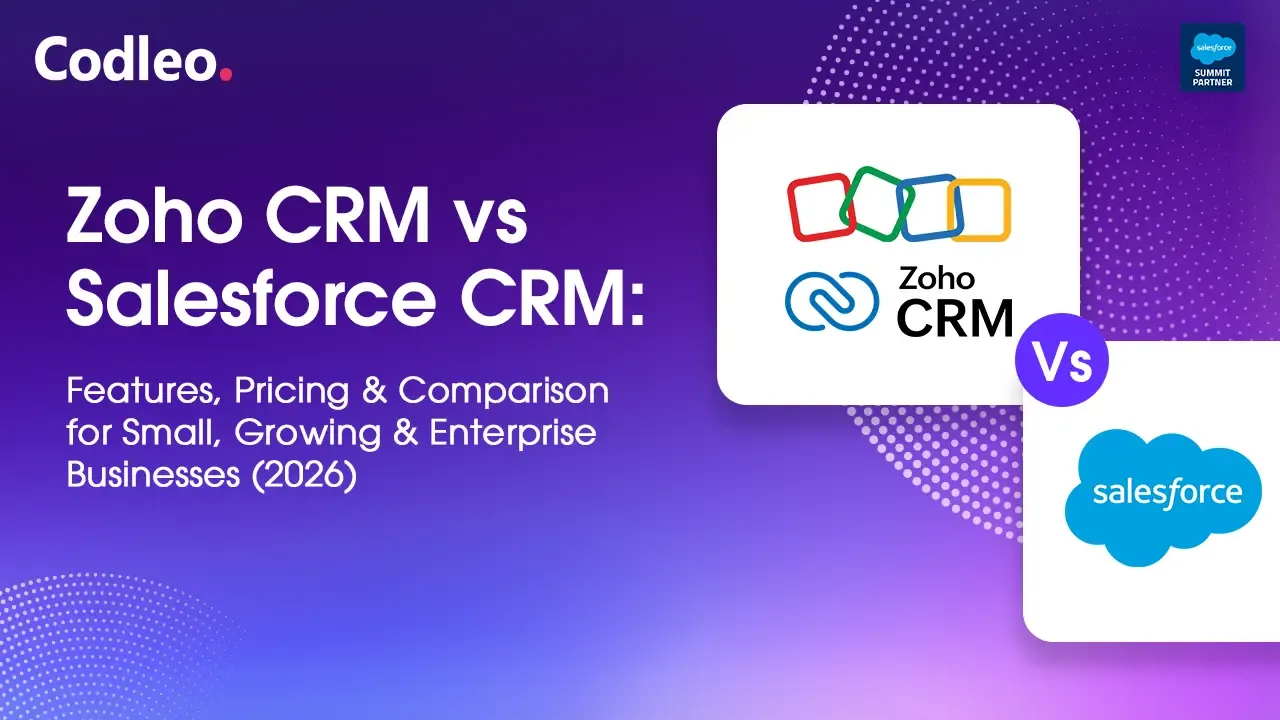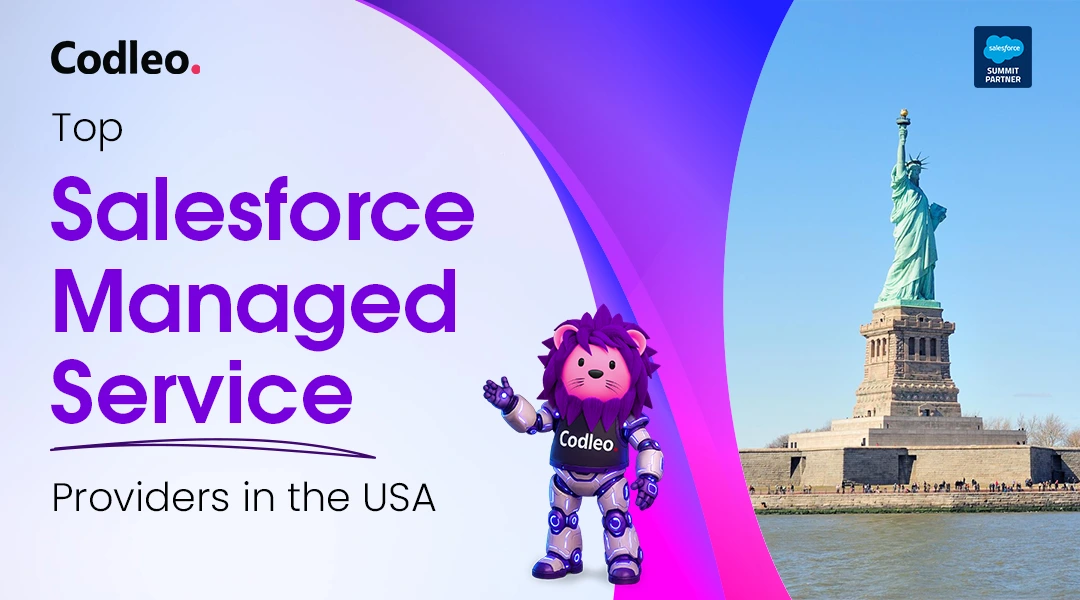Publish date:
The Salesforce Integration Service is a way to enable a brand to assist clients with perfect product suggestions, save time, assist them in providing timely replies to support tickets, and increase the chances of up-selling. Let’s read more.
The challenges a business faces without Salesforce are:
-
Manual processes lead to human errors. Salesforce integration brings in automation of processes that otherwise are repetitive, boring, time and energy-consuming. These manual processes often result in the collation of error-filled data, copious amount of time in doing so, and opens a crack for mistakes that impact various aspects of the business.
-
Gaps in the understanding of a client/lead. Without a CRM like Salesforce, brands don’t have holistic information on each client that engages with the brand, and their journey. Gaps in the knowledge base exist that mar the customer experience. Without Salesforce as a dependable ally, businesses are unable to compete with tech-savvy and agile businesses (big or small) in the race for customer loyalty.
-
Deficit of Information Tech resources. Without Salesforce integration, IT companies custom-code integration that links vital applications which is a challenging & non-scalable task. Custom coding gobbles up precious IT resources and results in an increase in expenses.
The various types of Salesforce integration are:
-
Marketing – The integration heralds automation to marketing plans. It aids brands to generate opportunities, pushing sales, enhancing client delight, and increasing brand awareness.
-
Ecommerce - It aids users to produce and accessing real-time data during the acquisition of new clients. It has proved to be useful during upselling or cross-selling and even client delight.
-
ERP – ERP software is used by the accounts department of many medium and large-scale companies. With Salesforce integration, you can whip into shape your business operations, reach cash predictions, manage liquidity, and get valuable information for analysis & action.
-
Customer Service – Get top marks for client satisfaction. Focus on improving customer delight, slowing down the angst or loss of clients, and so on. The engagement with clients/leads is smarter, responsive, and wholesome leading to better outcomes, enhanced loyalty, and better financial returns.
The advantages of integration are:
-
Enhanced productivity. It aids brands to reduce mistakes, save time, and get good results which all combine to make a company into a lean and mean work machine. No more wastage of time, energy, or resources.
-
Codeless flow of work. Without the need for coding, integrations with other apps take place. This means a business saves time, human resources, and costs.
-
Access to data. After integration, you get data from different sources/mediums in one unified place. Intelligent and informed decision-making is enabled by this availability of accurate & wholesome data.
-
Insightful reports. With data from manifold sources, the reports and dashboards tend to be more detailed and accurate. Reports now empower businesses to strategize and take remedial action if need be.
-
Client loyalty. Engagement with clients that is personalized and relevant fosters greater loyalty and even becomes “ unofficial brand ambassadors “. After all, this is the reason for onboarding a CRM, to begin with.
Also Read: WHY YOU SHOULD HIRE SALESFORCE INTEGRATION PARTNERS FOR YOUR BUSINESS GROWTH?















